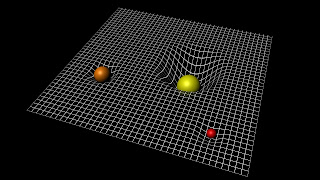Is time travel possible?
Time travel means moving between different points in time. It has been a exciting topic for science fiction for decades. As we have seen in movies, that humans get in a vehicle of some sort and arrive in the past or future. And each of them come up with their own theories.
One of the important factor for time , is Gravity. In the Theory of general relativity, Einstein showed that gravity bends time. Now we consider a four dimensional fabric or spacetime. When a object having mass puts on the fabric then that object causes a bending of spacetime. Now this bending causes object to move on the curved path, and that curvature of space is called Gravity.
But the reality is however more complicated. Not all scientists believe that time travel is possible. And some even say that an attempt would be fatal for humans who undertakes it.
Before we come in time travel, first we have to know what is time?
At first scienctists thought that time is constant. Then the mastermind physicist Albert Einstein, in his 'Theory of general relativity' and 'Theory of special relativity', showed that time is an illusion, it is relative with the speed of the observers. Einstein said that time is the 'Fourth Dimension'. And it only moves forward. Time slows down and speeds up depending upon how fast you move relative to something else. And this explains like, if someone in the spaceship, moving with light speed, would age much slower than his twin at home. |
| Four dimensional fabric or Spacetime. |
Time travel:
Yes, Time travel is a real thing. But if we want to experience the time travel like we used to see in movies, it isn't possible right now. Actually, our science hasn't progressed that much to move in past and future through time travel. But we can observe the future little bit. Actually, in our daily life we can observe it.
Most common one is our earth's satellite system. The GPS system of our earth is based on Einstein's both general and special relativities. With the GPS we measure the position of different objects on ground. But for the effects of gravity and satellite's increased speed causes the observers' GPS accuracy loss with some miles every day. Thia effect is called 'Time dilation'.
We can also observe this time dilation in our daily life. Let assume, Jack on a moving train bouncing a ball on the board of the train at some speed, and Jill on the platform, will see the ball bouncing at the faster speed. Actually, Jill sees the bouncing ball covering a curved path, rather than the perpendicular path. But here will be less time dilation than the GPS system.
So this conclude that if we move faster , we will get much time dilation.
Time travel theory:
From the Einstein's equation E=mc2. And the equation Energy= 1/2mv2. We can figure out that if we are able to move faster than light we can travel in future. But actual thing which is troublesome, is Traveling in past. Because, time is moving in forward direction. For this we need the 'Dark energy density', which can develop time to flow in backward direction and one possibility to moving in past through time. It is theoritically possible, but practically the quantities of dark energy density to be produced is very small to construct a time machine. We can hope that in future we could be able to develop this and moving in past will be a child's play like we used to see in movies.
Some theories and paradoxes about Time travel:
1. Wormhole:
Wormholes connect two points in spacetime, which means that they would in principle allow travel in time, as well as in space. In 1988, Morris, Thorne and Yurtsever worked out how to convert a wormhole traversing space into one traversing time by accelerating one of its two mouths.
2. Black hole:
To a distant observer, clocks near a black hole would appear to tick more slowly than those further away from the black hole. Due to this effect, known as gravitational time dilation, an object falling into a black hole appears to slow as it approaches the event horizon, taking an infinite time to reach.
3. Large hadron collider:
Switzerland's Large Hadron Collider (LHC) can be called a time machine in one sense: it enables us to examine conditions as they were during the universe's early stages.








Comments
Post a Comment